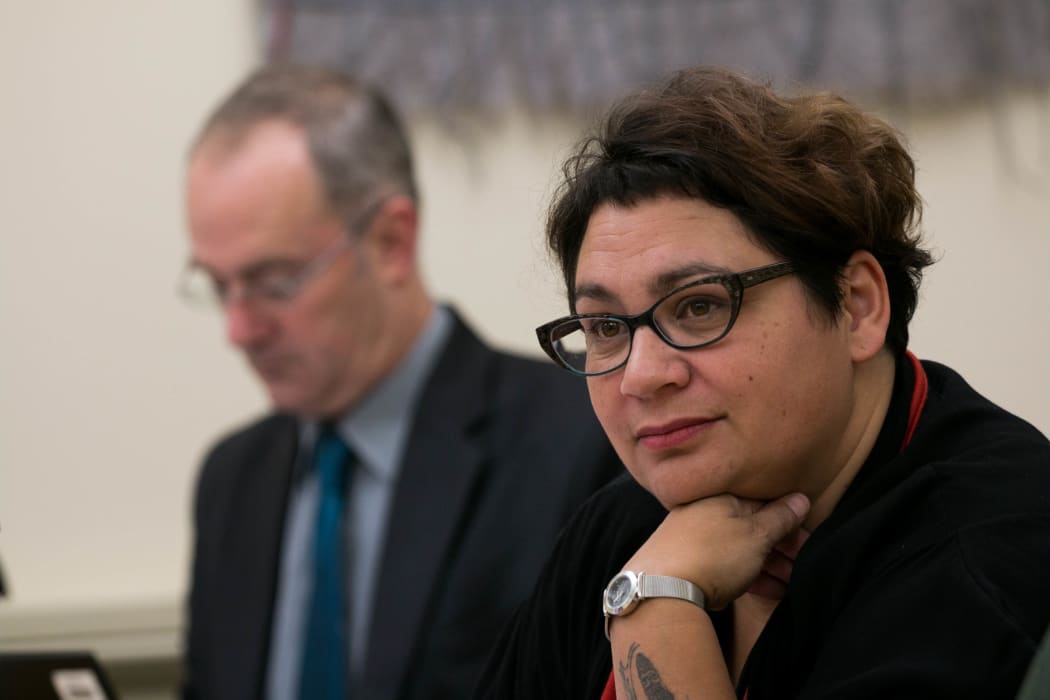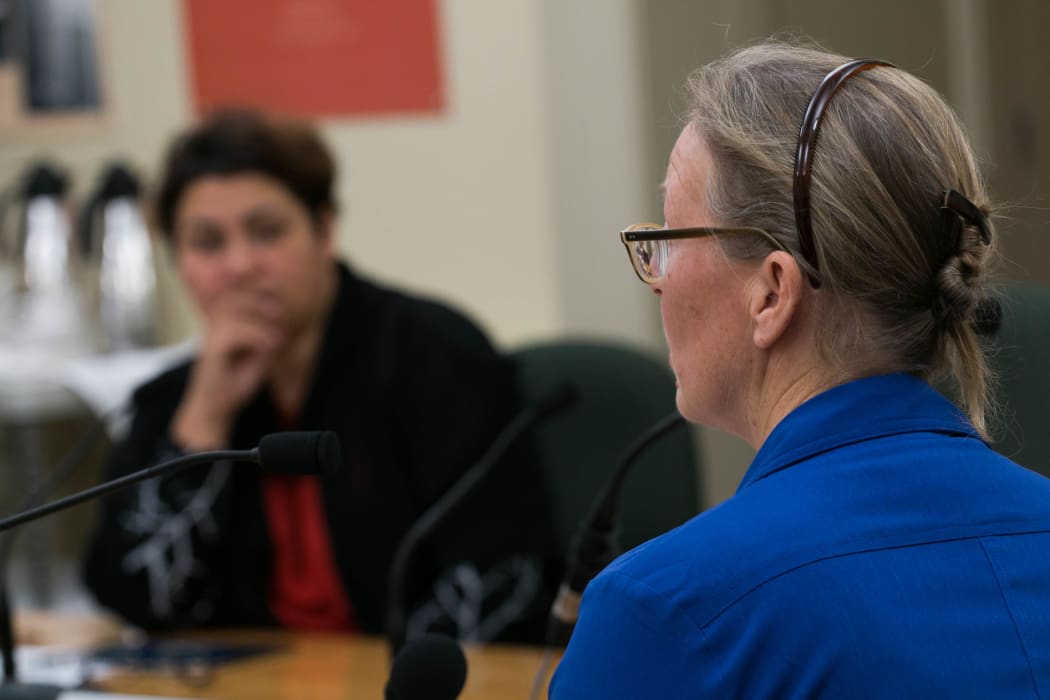The Healthy Homes Guarantee Bill is one of those rare beasts - a Member’s Bill that made it both out of the Biscuit Tin (i.e. got picked at random from amongst dozens of other contenders), and then survived its first vote in the House.

Green Party co-leader Metiria Turei hears submissions on the Healthy Homes Guarantee Bill (No 2) which will guarantee minimum standards of heating and insulation. Photo: VNP / Phil Smith
It is now before the Business Administration Committee which is hearing public submissions before reporting back to the House at the end of June.
The intention of the legislation is to ensure that every rental home in New Zealand meets minimum standards of heating and insulation.
The bill is being considered within an environment where housing, insulation and impacts on health have all become political. This was evidenced in a series of pointed questions in the House on Tuesday from the Green Co-Leader James Shaw around the Government’s budget decision to end subsidies for home insulation.
One of Mr Shaw’s supplementary questions was “If a 6 to 1 benefit-cost ratio to tackle a problem that puts kids in hospital 40,000 times, and kills more people than the road toll every year, doesn't meet the criteria to be considered a good social investment, what does?”
In the Committee today submitter Ian McChesney said that when he started out working on healthy home solutions he would have refused to believe that 25 years later we would still be debating cold homes.
Other submitters included Hugh Baird the president of the Otago University Students Association who said that his group and the University have both tried tracking down absentee landlords to talk to them about North Dunedin housing quality - because poor housing leads to poor student behaviour.
“When people are forced to live in a pig sty, don’t expect them not to act like pigs. A lot of the behavioural problems we have in North Dunedin we put down to the fact that people are living in slums,” said Mr Baird.
The Citizens Advice Bureau receive more than 10,000 queries a year on tenancy. So they get a lot of insight into the issues. Lisbeth Gronbaek spoke for the CAB and said that all rentals should be healthy, safe and comfortable.

Citizens Advice Bureau policy advisor Lisbeth Gronbaek speaks to the Government Administration Committee about the Healthy Homes Guarantee Bill (No 2). Photo: VNP / Phil Smith
She also pointed out that there are already many laws about healthy housing - but they are pointless without good enforcement.
Some of them date back seventy years - and have never been enforced but she said, enforcement couldn’t rely on complaints from tenants, as that could just result in eviction.
Maddie Little and and Elaina Lauaki-vea appeared for the group Tackling Poverty NZ. They pointed out that 71% of Pasifika People’s are tenants and these high rental rates mean there is a disproportionate ethnic health impact from unhealthy homes.
Their evidence took a powerful turn when they began describing their own experiences; Elaina Lauaki-vea spoke of her current household who all sleep in the lounge, because the house is so cold. Despite this one child in the household has already had numerous asthma attacks, though the worst of winter is yet to arrive.
Maddie Little described one flatmate who visits outpatients in their homes and always wears a puffer jacket inside because their houses are so cold she can barely think by the end of the consolation if not well enough clad.
The Salvation Army also gave evidence and said that it is time for a significant rethink of New Zealand's housing standards and laws, including the need for tenants to hold tenure so they can feel safe in their chosen accomodation.


